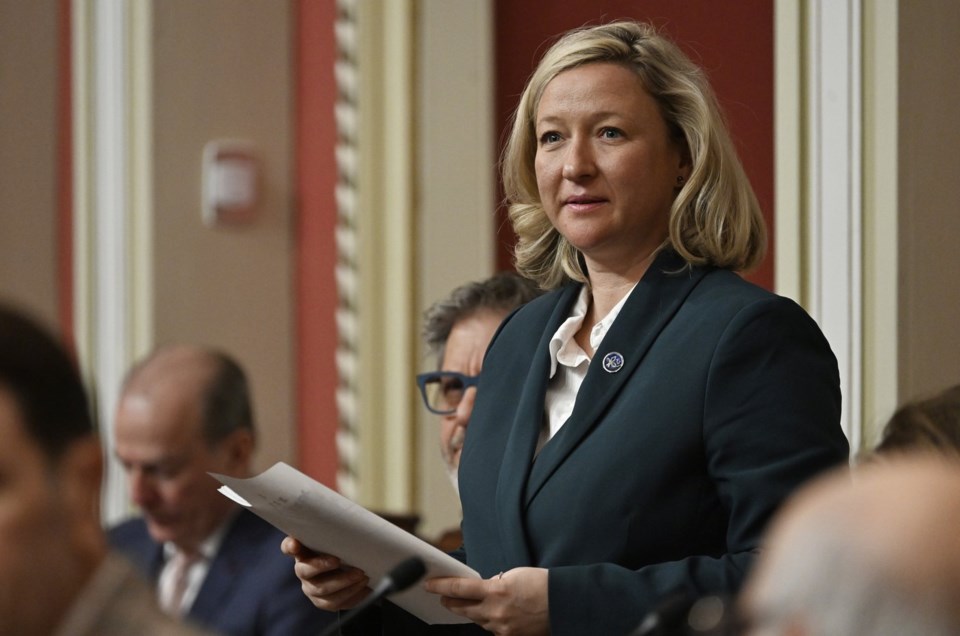MONTREAL — First Nations in Quebec have walked away from talks with the provincial government on a forestry bill they say would pave the way to privatizing public land.
The Assembly of First Nations Quebec–Labrador says the province has not shown "genuine political will" to collaborate with Indigenous communities on the government's forestry reform, which they say does not respect their rights.
"We cannot lend credibility to a process that fails to recognize our status and responsibilities as Indigenous governments," the assembly said Tuesday in an open letter.
The Quebec government tabled a bill last spring aiming to protect communities that depend on the forestry industry. The legislation would divide public forests into zones designated for conservation, multi-purpose use or forestry.
According to the bill, actions that "restrict the carrying out of forest development activities" would be prohibited in the forestry zones, as would conservation measures.
Indigenous leaders were quick to criticize the bill, saying it infringed on their rights. But the assembly, which represents 43 First Nations communities in Quebec and Labrador, had agreed to consultations with the government on the new forestry regime.
However, Sipi Flamand, chief of the Council of the Atikamekw of Manawan, said Tuesday that members of the assembly had to walk away.
"It wasn't a decision we took lightly. We went to the high-level table with a real desire to rebuild," Flamand said in an interview.
"But the process doesn't respect our rights or our status as governments. We can't stay seated at a table that's going nowhere."
In Tuesday's open letter, assembly Chief Francis Verreault-Paul and five members of the group's committee on forests, including Flamand, say the government has refused to engage on the zoning strategy, which they want scrapped.
"The zoning principle, which lies at the heart of the current bill, would pave the way for a form of land privatization," they said. "This approach has been widely criticized — not only by us, but also by the scientific community, conservation organizations, and numerous actors in the forestry sector."
Flamand said the assembly favours a "co-management" model that would see First Nations work with industry and government to determine which areas must be protected.
But the chiefs say the government has refused to commit to the co-management of forests or to respecting First Nations' ancestral and treaty rights. "These principles are neither ideological nor symbolic," they said. "They represent the minimum legal standards required for a credible process."
In an email statement, the office of Natural Resources Minister Maïté Blanchette Vézina said the government is taking the summer to prepare amendments to improve the bill, particularly with regard to Indigenous communities.
"We hope to continue discussions to work together on sustainable forest development and ensure economic benefits for all communities," the statement said. "We intend to continue our work in good faith and invite the (assembly) to the discussion table."
Blanchette Vézina has said the bill is needed to bolster the forest industry in an uncertain economic environment, including the trade war with the United States.
"Currently, communities need the forestry industry to regain its dynamism so that it can meet the many challenges they face," her office said.
Flamand said the assembly is now waiting for the government to make the next move. "We could come back to the table, but it must be on a clear, respectful basis and with a real desire to build a balanced future for our forests," he said.
He added that if the government pursues the zoning approach, the assembly could challenge the legislation in court.
This report by The Canadian Press was first published July 22, 2025.
Maura Forrest, The Canadian Press



